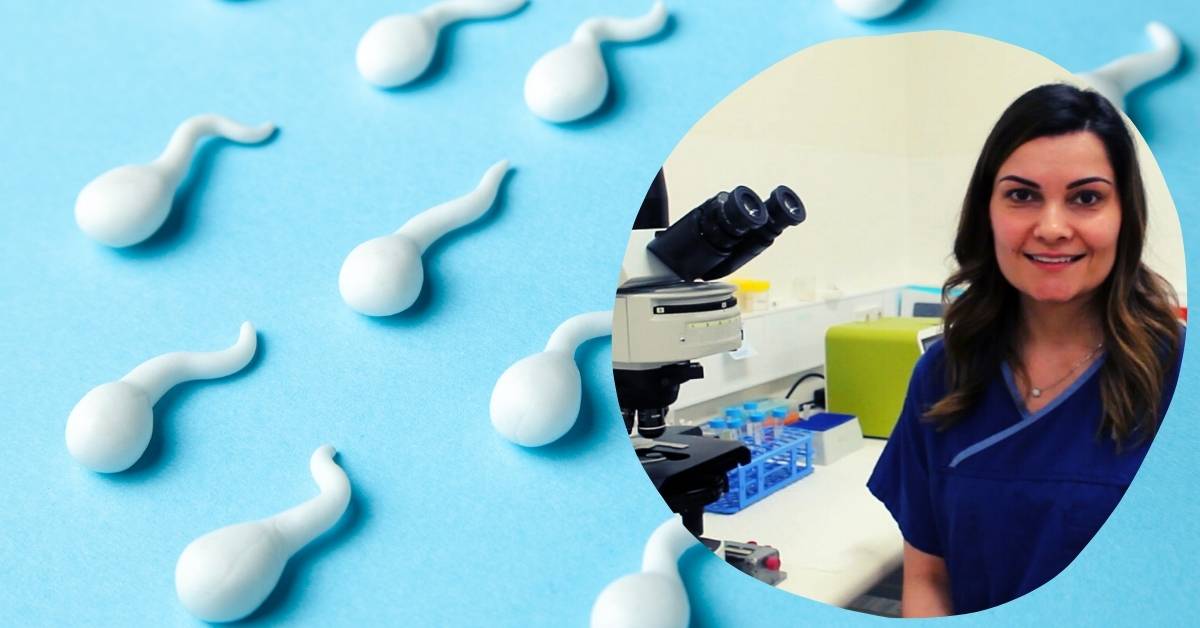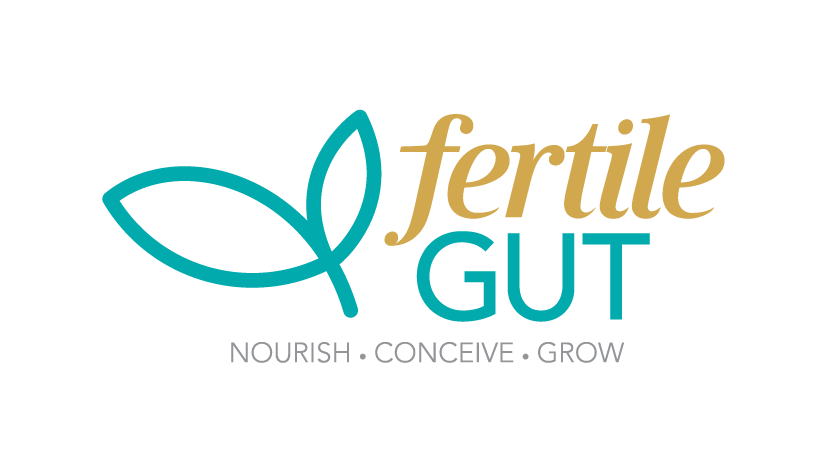|
Guest blog by Kristen Jones an APACE accredited Embryologist and Founder of “I Like My Eggs Fertilised“. We are excited to collaborate with the fabulous Kristen from @ilikemyeggsfertilised. Kristen is an Accredited embryologist and has teamed up with our Accredited Exercise Physiologist and Accredited Dietitian to discuss what DNA fragmentation is and steps you can take to reduce it for better quality sperm! What is Sperm DNA FragmentationDNA is essentially the genetic instruction book for how we grow and function that is contained in every living cell. Breaks, or fragmentation, of the DNA will affect how the cell functions. A small amount of DNA damage is always present but when this damage is high, fertility can be impacted. If your sperm viability is low (<50%), then it is likely that you have high DNA fragmentation rates. Even with a normal semen analysis, 15% of men can have high levels of DNA damage to the sperm. Read on to find out more about DNA fragementation and importantly steps you can take to reduce this for better fertility outcomes. What Causes Fragmentation?Fragmentation of the Sperm DNA may occur while sperm are stored in the epididymis of the testes. Some causes may be short term illness, injury, lifestyle factors or chemical exposures, but sometimes, no cause is identified. Semen quality and DNA fragmentation are likely to vary somewhat, but when sustained, it is associated with reduced natural conception and increased chance of miscarriage. While infertile men possess substantially more DNA damage (Zini et al., 2008), a semen analysis may show normal parameters when high levels of DNA fragmentation are present (Robinson et al., 2012). How is Fertilisation Impacted?Fertilisation rate in IVF may, or may not, be impacted by higher levels of DNA fragmentation. While some studies show a negative correlation between the integrity of DNA in ejaculated sperm and fertilisation rates (Bronet et al., 2011), sperm with DNA damage can fertilise oocytes successfully (Alvarez Sedo et al., 2017). Despite successful fertilisation that may give rise to good grade embryos, these may fail to implant or result in early pregnancy loss (Robinson et al, 2012). Indeed, male factors do contribute to early pregnancy loss. With ICSI, sperm with high DNA damage are more likely to fertilise than with conventional IVF, but miscarriage can still occur (Robinson et al, 2012). Is Embryo Development Affected?A study by Alvarez Sedo et al. (2017) found that while fertilisation was not affected by high DNA fragmentation, there was a negative correlation with blastulation rate. They found that high levels of DNA damage promote embryonic arrest and induce activation of apoptosis, or cell death and observed a much high pregnancy rate in patients with low DNA damage. The affect of DNA fragmentation may be more severe in older patients as oocyte quality is strongly associated with age and the ability of an egg to repair sperm DNA damage may decline in older eggs (Robinson et al., 2012). Pregnancy Rates and LossWhile the chance of getting pregnant can be lower in couples with high DNA fragmentation going through IVF and ICSI treatment (Bronet et al, 2011; Zhao et al, 2014), for those that do have a positive pregnancy test, sperm damage may also increase early pregnancy loss. While some studies suggest no increase in recurrent pregnancy loss (Bronet et al, 2011, Coughlan et al. 2014, Gat et al, 2017), others report significantly higher risk of pregnancy loss with IVF and ICSI (Haddock et al, 2020, Rivas-Maynou et al., 2012, Zhao et al, 2014, Zini et al., 2008). Pooled data from 13 studies has found that "male partners of women with a history of recurrent pregnancy loss have a significantly higher rate of sperm DNA fragmentation compared to the partners of fertile control women" (McQueen et al, 2019). While Bronet et al (2012) and Gat et al (2017) did not find a correlation between sperm DNA fragmentation and chromosomal abnormalities in embryos, the majority of studies show that high levels of oxidative stress and inflammation are related to sperm damage and increased pregnancy loss (Kamkar et al, 2018). What Strategies are Proven to Reduce DNA Fragmentation? 1. Keep Them Cool One common cause of high DNA fragmentation may be anatomical. If veins near the testicles are enlarged as with a varicocole, temperature of the testicles may be too high, impacting sperm health. This is found in 35% of patients with male infertility and can be surgically repaired (Kim, 2018). Keeping testicles cool is a good idea in general. Avoid having a laptop on your lap, wearing tight clothing like cycling shorts for prolonged periods and choose cotton boxers over briefs. Also avoid high temperature environments such as saunas. 2. Boost Your Antioxidant Defenses Exercise has been shown to improve sperm quality and DNA integrity by reducing markers of inflammation and oxidative stress (Maleki et al, 2017). Even if male factor fertility issues are not the primary reason you are undergoing IVF, ensuring your sperm are in tip-top shape will help you to maximize your chances. If you have not exercised regularly before and are planning to undergo IVF, the right exercise prescription will benefit your sperm health. Twelve weeks of structured jogging sessions (70-85% VO2max 3 x week) in infertile males significantly reduces inflammation, boosts antioxidant capacity, reduces sperm DNA fragmentation (Maleki & Tartibian, 2017). These benefits are also seen in slightly overweight males (average body mass index >25) undertaking aerobic exercise (Hajizadeh et al, 2013). Six months of moderate exercise in males with low sperm counts with or without DNA fragmentation increased live birth rates by over 90% (Hajizadeh et al, 2017). Now that's an impressive outcome! Progressive resistance (strength) training over a period of 12 and 24 weeks has also been shown to improve sperm quality and pregnancy rates (Hajizadeh et al, 2018). The mechanisms for this relate to the reduction in inflammation, boost in antioxidant defences and increase in circulating testosterone concentration that comes with strength training. In males taking part in structured resistance training, the chance of live birth increased 2 to 15 times. Getting the balance of exercise right though is important. In high level triathletes (VO2max 70 ml/kg/min) with 5 years racing history and training, semen parameters were at the lower end of the ‘normal’ reference range set by the World Health Organization (ranges used in laboratories to determine sperm quality), and DNA fragmentation was high (Vaamonde et al., 2017). This supports similar studies that suggest that high volumes and intensities of endurance training may have negative effects on sperm quality (Hajizadeh et al., 2013; Vaamonde et al., 2017). You can take a listen to us on the Beat Infertility Podcast to find out more about exercise and sperm health. Seeing an Accredited Exercise Physiologist will ensure you get the right exercise prescription to optimise your sperm health. 3. Nourish Your Sperm A healthy diet correlates with better quality sperm parameters, and lower DNA fragmentation. (Skoracka et al, 2020). Inflammation and oxidative stress contribute to DNA fragmentation but these can be modulated by your diet. A diet that focuses on reducing refined sugars, saturated fats and animal proteins, and includes fruits, vegetables, nuts, whole grains, fish, and healthy oils will reduce inflammation. Saturated fats and sugar lead to disruption of our gut microbiome causing dysbiosis which promotes inflammation (Guevara-Cruz, 2019). Eating to nurture the diversity of your gut microbiota reduces inflammation and immune toxic compounds such as lipopolysaccharide (LPS) that damage sperm DNA (Pearce et al, 2019). While it may be tempting to reach for an antioxidant supplement we first recommend a comprehensive dietary analysis to identify what micronutrients you are missing out on so that if you do require a supplement, it is specifically targeted for a better outcome. Only 17% of ingredients found in male fertility supplements have published evidence showing a positive effect on semen parameters (Kuchakulla et al, 2020). Consult with an Accredited Dietitian so you get to look at your diet as a whole and establish the best strategy for optimising sperm health so you are not throwing your money down the drain! If you are after evidenced based, clincial dietetic guidance to reduce sperm DNA fragmentation join our next Fertile Gut Masterclass starting January 2021! 4. Time to Quit? Cigarette smoking negatively affects fertility, compromising nearly every system involved in the reproductive process. Heavy smoking, and heavy drinking, significantly increase sperm DNA fragmentation (Boeri et al, 2019). Knowing that the quality of sperm at the time of conception can have a lasting impact on the future health of your unborn child, seek support by contacting quitline or check out quit.org.au for some great resources to help you on your journey to better sperm health. You Can Make a Difference!If you have undergone a DNA fragmentation test and have levels that are high, there are steps you can take to improve the health of your sperm. Your lifestyle impacts sperm health and sometimes changes required may be small, but translate to improved fertility and chance of conception.
Ensure you access evidenced based services so the strategies you are adopting will have you on the path to reducing DNA fragmentation. Optimising sperm health should be top of the priority list for a successful pregnancy. Dad’s health at the time of conception influences the health of your future children. Even if male factor fertility issues are not the primary reason you are undergoing IVF, ensuring your sperm are in tip-top shape will help you to maximise your chances of pregnancy success. Comments are closed.
|
|
1300 084 694
[email protected] Suite T36, 477 Boundary St Spring Hill, Brisbane QLD 4000 Fax. 07 3540 8164 Copyright © 2022
|



